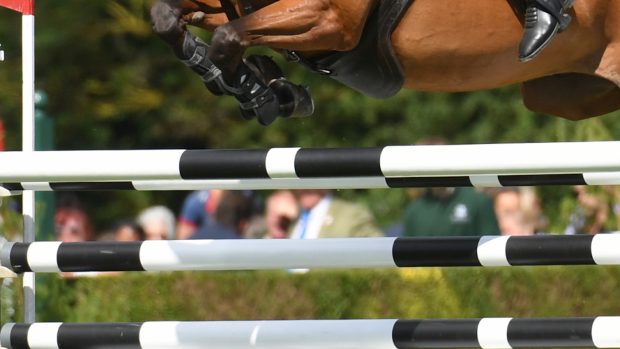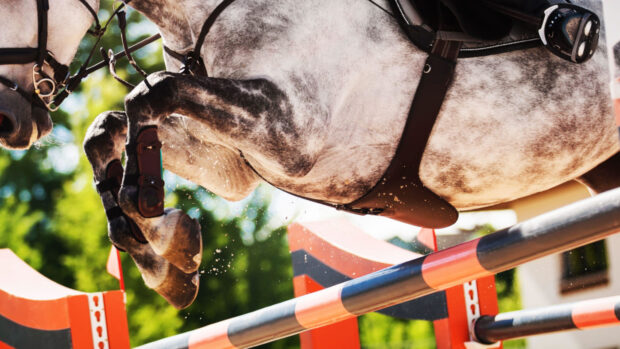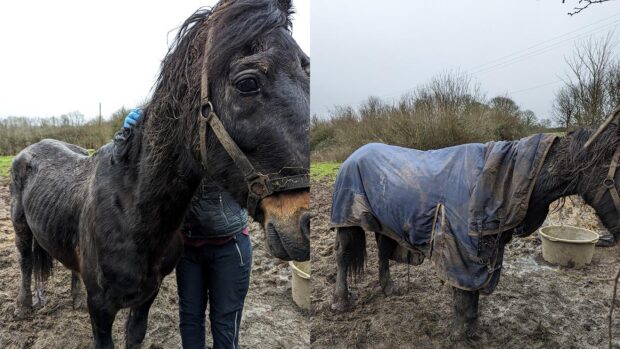Richard Davison, a four-time dressage Olympian and former British World Class performance manager, who has been at the forefront of international dressage for more than 30 years, on the latest FEI developments and a chance for the sport to recalibrate
Lottie Fry’s World Cup triumph is not only another huge personal accolade for her and Glamourdale’s owners, Gertjan and Anne van Olst, it also signals Britain’s continued strength at the top of the sport.
Despite the incredibly high degree of difficulty, Lottie’s freestyle matched every beat of her British-themed music. The judges rewarded her with strong technical marks, particularly for harmony between horse and rider. Given the heightened scrutiny riders like Lottie Fry are under, this was especially good news.
I’ll be interested to see what findings emerge from R-Haltenswert, the German-based welfare group invited by the organising committee to observe the warm-up arenas and monitor FEI stewarding protocols.
Good governance is needed
I attended the FEI Sports Forum (31 March–1 April) in Lausanne held immediately prior to the World Cup Final.
The agenda reflected the high volume of representations the FEI has received following last year’s high-profile equine abuse cases. Top of the list when it comes to calls for reform was the issue of dressage judging.
The implication is that either judges are failing to recognise and penalise signs of discomfort or that there is a lack of consensus on how to score these observations. In my view, it is the latter and it has been perpetuated due to the FEI’s delay in implementing a coherent and agile code of points.
In response, the FEI has established several advisory and strategic working groups, including a strategic action planning group specifically for dressage. The group includes well-respected experts such Kyra Kyrklund, Danish vet Lise Berg and our own Gareth Hughes.
While the group seems to be in the early stages of its discussions, blue-sky thinking is a positive start. The challenge, of course, will be to convert these ideas into clear and enforceable rules.
It was repeatedly stated that those rules, which are to be designed to enhance the wellbeing of our horses, must be either evidence- or knowledge-based. Therefore, I was particularly dismayed at the lack of rationality in the suggestion that the reintroduction of collective marks could help resolve matters concerning judging and assessment.
The evidence is clear: studies show that collective marks in technical tests often enable bias and result in vague, inconsistent scores. Far from helping, they risk undermining the credibility of judges and the sport itself.
Thankfully, I was reassured by Kyra and Lise, who pointed to the robust scientific evidence already at the FEI’s disposal. This was a reminder that good intentions must still be backed by solid data.
Tack, equipment and protocols
Several submissions around tack, equipment and competition protocols have also reached parliamentary level in various national governments. Voters hold the power, and while hard evidence matters, we cannot underestimate the impact of public perception.
We must be prepared to view our sport through the eyes of those less invested than ourselves. In this, the FEI equine welfare advisory group could play a crucial role. Comprising eminent researchers, academics and independent experts, this group provides a much-needed external perspective.
Many of this group already have access to the corridors of parliamentary power. We will need to be much more comfortable with compromise if we want others to endorse our cause.
I have a sense that matters are now moving at pace and the FEI may need to accelerate the timeline it has set for the working group developing the action plan for dressage.
Looking ahead to Royal Windsor
Finally, for those keen to understand what goes into creating, training and riding an Olympic freestyle, you won’t want to miss this year’s Royal Windsor.
On Thursday, 15 May, I’ll be joined there by fellow Olympians Carl Hester, Dinja van Liere and Becky Moody for a special showcase. Set against the backdrop of Windsor Castle, it promises to be a spectacular and enjoyable event for all equestrian enthusiasts.
● Are dressage judging and welfare standards moving in the right direction? Let us know your thoughts at hhletters@futurenet.com, including your name, nearest town and country, for the chance for your letter to appear in a forthcoming issue of the magazine
- To stay up to date with all the breaking news from major events throughout 2025, subscribe to the Horse & Hound website
You might also be interested in:

Optional double bridles and judges’ alert buttons among measures proposed in dressage

*Exclusive* The double bridle debate – the facts, the opinions… and the politics

Major focus on ethical training and horses’ mental fitness to compete

*Exclusive* Why we are seeing blue tongues in dressage arenas – and what needs to be done about it

Subscribe to Horse & Hound magazine today – and enjoy unlimited website access all year round




